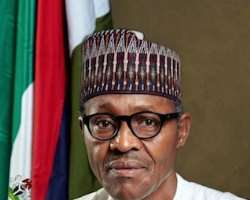Nigeria Today: Has Anything Changed After The Change?

After a stretch of poor governance in Nigeria for sixteen uninterrupted years, Nigerians home and abroad demanded for a “change”. That the change requested for is uniform in ideology to Nigerians is apparently not clear. Under the “change” cloud, some Nigerians desperately wanted a change of political party/government, whether the other parties were made up of same hands who messed the former ruling party was not important to the set of people.
Further to this, to some other Nigerians under same “change” cloud, their crave for change implies a transformation in social and political ideology in the country while some conceived the “change” has a reformed leadership that will bring about developmental changes in the nation in no time. In all these views, one thing is certain, Nigerians wanted renewed approach in the way the nation is been governed.
The 2015 elections came with huge expectations which accosted the new government; considering the outrageous flow of propaganda against the ruling government and the juicy electoral promises of the All Progressive Congress prior to the general elections, majority of Nigerians believed and argued vehemently that once the People’s Democratic Party government is voted out and the All Progressive Congress is voted into power, Nigeria will experience dramatic progress in all sectors of the nation, particularly in the areas of insecurity, unemployment, economic growth and corruption.
In the history of Nigeria’s democracy, there was never a time the citizens are this tasty for improvement in governance. The decadence caused by previous government prompted this- Nigeria became globally recognized for corruption and terrorism, infrastructural plight of the nation became depressing and the economy regressed daily with increased number of unemployed graduates.
The campaigns promises of the Muhammadu Buhari led government centres on these pressing issues. Been a former military head of state and a converted democratic president, with outstanding records of service, particularly in the fight against corruption, more and more Nigerians believed the task of rebuilding Nigeria, speedily is possible with Muhammadu Buhari. Six months down the road, but nothing seem to have changed.
On swearing in, Muhammadu Buhari received global support to deliver his campaign promises to Nigerians. Play markers in the globe pledged their support for Muhammadu Buhari in his fight against corruption, terrorism, unemployment among others. The United States and United Kingdom had promised to support the Nigerian government in recovering stolen funds saved and invested abroad, the frenzies that followed these promises gave specific assurance to Nigerians that all stolen funds will be released and guilty public office holders will be prosecuted in no time.
Even though, the Buhari administration has made moves to charge a few public office holders who were alleged of corruption, none seem to have been productive for over six months. So far, the alleged persons end up with a bail in the court.The fight against corruption seems to have been frustrated early enough. The approach used as a military head of state cannot be used as a democratic president. Over time, the president has alleged the judiciary of frustrating his fight against corruption.
The hope and confidence invested in this government on election has dropped drastically, as the government proves incapable to deliver its promises to Nigerians. Aside the fight against corruption which is been frustrated, the president had promised to crush Boko Haram extremist in two months, contrary to his promise, the group seem to have waxed stronger in its activities, as more deadly attacks are launched against the Nigerian people, including the deadly blasts in outskirt areas of Abuja. Even though he has extended timeline to crush Boko Haram to December 2015, recent activities of the sect in Kano, Yobe and Borno places strong doubt about the tendency to crush them by December.
Economic imbalance and unemployment is one of Nigeria’s major challenges. Contrary to Buhari’s campaign promises, there no clear economic direction yet, even after six months. After tough intra party crisis on the emergence of NASS leadership, the president produced his ministerial list in the dying hours of September, four months after he was sworn-in. Unemployment is rising, so also inflation. No doubt the fall in oil price is affecting Nigeria’s economy; however, diversification plans are yet to be unveiled by the government despite the on-going regression. Almost immediately after the president announced himself as the petroleum minister, nationwide fuel scarcity commenced which has lasted for more than three weeks, with no solution yet.
Now the change has come, has Nigeria changed? Nigeria is systematically returning to the old ways. So far, the situations are becoming more complex for the government to handle. More of the campaign promises have been contradicted. Nigeria today is turning out to remain the same, no changes, at least none yet!
Olawale Rotimi Tweets from @RotimiLawale and he can be contacted through [email protected]
Olawale Rotimi
B.A, M.A Ilorin, DELF Paris.
T: @RotimiLawale
"You don't struggle to grow, grow the grass and the sheep will come, nurture it and they will never. Increase in quality not in quantity"
